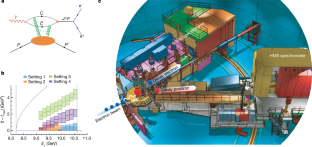化石放射性炭素の測定により、CO2の取り込み、炭素貯蔵、気候への影響を示す Fossil radiocarbon measurements show effect on CO2 uptake, carbon storage and climate
2023-03-29 カリフォルニア大学校アーバイン校(UCI)
彼らは、世界中の何千もの化石堆積物サンプルに含まれる放射性炭素14の痕跡を分析することで、この交換を発見しました。
この新しい知識は、現在の気候変動を制御するために、海洋学者や地球システム科学者が海洋の役割を完全に理解するのに役立つ可能性があります。
<関連情報>
- https://news.uci.edu/2023/03/29/uc-irvine-earth-system-scientists-uncover-ice-age-shift-in-pacific-ocean-circulation/
- https://www.science.org/doi/10.1126/sciadv.abq5434
最終氷期以降の深海循環と炭素貯蔵のグローバルな再編成 Global reorganization of deep-sea circulation and carbon storage after the last ice age
Patrick A. Rafter,William R. Gray,Sophia K.V. Hines,Andrea Burke,Kassandra M. Costa ,Julia Gottschalk,Mathis P. Hain,James W.B. Rae,John R. Southon,Maureen H. Walczak,Jimin Yu,Jess F. Adkins,Timothy DeVries
Science Advances Published:16 Nov 2022
DOI:https://doi.org/10.1126/sciadv.abq5434

Abstract
Using new and published marine fossil radiocarbon (14C/C) measurements, a tracer uniquely sensitive to circulation and air-sea gas exchange, we establish several benchmarks for Atlantic, Southern, and Pacific deep-sea circulation and ventilation since the last ice age. We find the most 14C-depleted water in glacial Pacific bottom depths, rather than the mid-depths as they are today, which is best explained by a slowdown in glacial deep-sea overturning in addition to a “flipped” glacial Pacific overturning configuration. These observations cannot be produced by changes in air-sea gas exchange alone, and they underscore the major role for changes in the overturning circulation for glacial deep-sea carbon storage in the vast Pacific abyss and the concomitant drawdown of atmospheric CO2.



